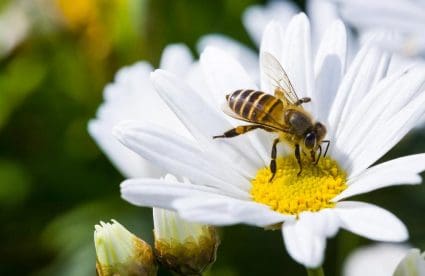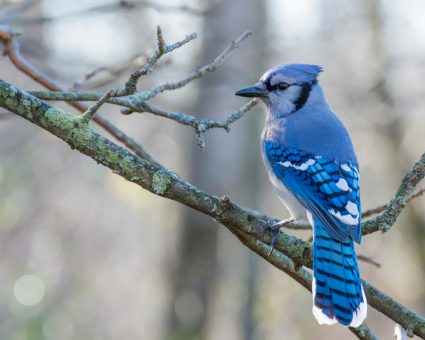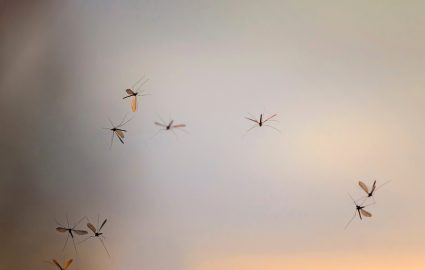
Skunks are well-known for their distinctive black-and-white fur and their powerful odor. While they are generally harmless creatures, their presence can become problematic when they decide to take up residence in your yard or under your home. If you’ve been noticing skunks around your property, you might be wondering how to deter these nocturnal visitors. Here’s an in-depth guide on how to deter skunks, complete with examples and statistics.
To deter skunks from your property, secure all food sources, install bright lights, maintain a clean yard, use repellents, control turf pests, and seal off access points. Regular property maintenance can make your property less attractive to skunks. If a skunk has already made a home on your property, it is recommended to call a professional wildlife control service.
Understanding Skunks
Skunks are small mammals known for their ability to spray a liquid with a strong odor. They use this spray as a defense mechanism against predators. Skunks are omnivorous, eating both plant and animal material and changing their diets as the seasons change. They feed on insects, small rodents, fruits, nuts, and other types of food that are readily available.
One common misconception about skunks is that they are aggressive. However, skunks are not needlessly aggressive. They only spray their notorious scent when they feel threatened, and only after displaying several warning signs, such as puffing up their coats, stomping their feet, charging, hissing, and growling.
Primary Methods to Deter Skunks
Several methods can be used to deter skunks from residential areas. Here are the most effective ones:
Secure your food sources
Skunks are attracted to easily accessible food. Secure your trash bins with tight-fitting lids, feed pets indoors or remove leftover pet food at night. Store bird and pet food in sealed containers in hard-to-reach locations.
Install lights
Skunks are nocturnal and do not like bright light. Installing motion-activated floodlights can help startle and deter them from your property.
Maintain a clean yard
Keep your lawn clear of fallen branches, twigs, garbage, and leaves. The less cover they have to hide behind, the less likely they are to approach your property.
Use repellents
Ammonia-soaked rags, mothballs, or homemade pepper spray can be used to deter skunks from specific areas. However, these repellents may need to be reapplied as their smell fades and should be kept away from children and pets.
Control turf pests
Skunks feed on insects and rodents, so controlling these pests on your property can help discourage skunks from staying.
Seal off access points
Patch holes around your foundation and screen off low shelters to prevent skunks from entering your property.
Commercial Products for Skunk Deterrence
Several commercial products are available that claim to deter skunks. These include peppermint essential oil, BONIDE PRODUCTS INC (BND2361 Animal Repellent Granules), Safer Brand Critter Ridder Animal Repellent, Lulu Home Ultrasonic Animal Repeller, and Natural Armor Animal & Rodent Repellent Spray. However, it’s important to note that the effectiveness of these products may vary, and some skunks may still visit your property despite their use.
Preventing Skunk Visits
Prevention is the best way to keep skunks away from your property. Regular property maintenance and landscaping can help deter skunks by making your property less attractive to them. Make sure to remove any potential food sources and shelters for skunks. Install proper fencing and use appropriate repellents.
What To Do If a Skunk Has Already Made a Home on Your Property
If a skunk has already made a home on your property, call a professional wildlife control service. They can provide expert advice and assistance in safely and humanely removing skunks from your property.
Remember, skunks play a crucial role in controlling pests. They are a valuable part of our ecosystem, and we should strive to coexist with them. If you encounter a skunk, it’s essential to give it space and avoid cornering or threatening it. With a little understanding and effort, we can live harmoniously with these unique creatures.
For more information on how to deter skunks, check out link1, link2, and link3.
Frequently Asked Questions
What are some warning signs that a skunk might spray?
Skunks will typically give several warning signs before they spray. These include puffing up their coats, stomping their feet, charging, hissing, and growling. If you see a skunk displaying these behaviors, it’s best to slowly and quietly back away.
Will skunks attack pets?
Skunks are generally non-aggressive creatures and will only spray or bite when they feel threatened. However, curious pets may provoke a skunk, leading to an unpleasant encounter. It’s best to keep pets indoors at night to avoid any potential conflicts.
How often do I need to reapply homemade repellents like ammonia-soaked rags or pepper spray?
The frequency of reapplication depends on several factors, including the weather and the specific repellent used. As a general rule, homemade repellents should be reapplied every few days or after any significant rainfall. Always remember to keep these substances out of reach of children and pets.
Is it legal to trap and remove skunks myself?
Laws vary by location, so it’s best to check with your local animal control or wildlife agency. In many places, it is illegal to trap and relocate wildlife without a permit. If a skunk has made a home on your property, it’s recommended to call a professional wildlife control service.
Are skunks beneficial to my yard?
Yes, skunks can be beneficial to your yard as they feed on insects and small rodents, helping to control these pests. However, their digging behavior can damage lawns and gardens. It’s all about finding a balance and coexisting with these creatures.











